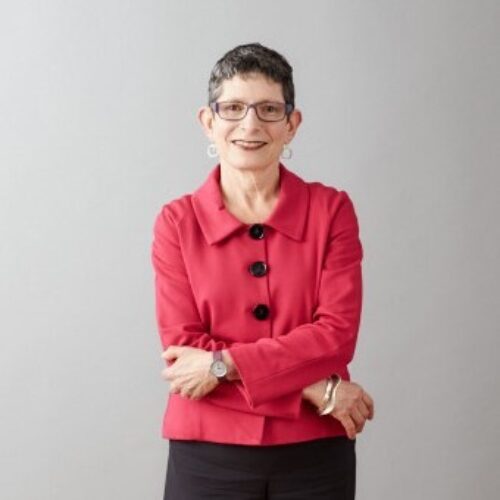- Summer 2022
- The Cutting: Interview with author Richard McHugh SC


In August 2022, Richard McHugh’s second novel The Cutting was published. According to the book’s flyleaf, Richard 'lives near the ocean in Sydney with his partner and their children. He argues cases, makes photographs and writes'.
Bar News (BN): How do you see the interaction between your practice as a barrister and your life as an author?
Richard McHugh SC (RM): They’re completely incompatible and mutually hostile. There’s almost nothing useful in terms of writing that you get out of a background of the law or practice. The law is very narrowing; it’s analytical; it’s all about evidence and it’s unemotional (or at least it’s supposed to be). The practice of the law is hostile to writing. In substance, they have almost nothing in common and in terms of process, cases are so all-consuming that it’s impossible, for example, to write two hours in the morning before court. The only way I can do it is by taking a week off here and there and running off to the country and doing nothing but write from first thing in the morning till late at night. Another difference is that as a barrister, you don’t have to promote yourself.
BN: This is your second novel (the first was Charlie Anderson’s General Theory of Lying). Was there a difference in the process between the two novels?
RM: I had a pretty clear idea of where the first one would end. This is the classic second novel in that there are too many story lines; and I wasn’t sure where it was going to end. By the time I got to the end, it needed a lot of editing, a process that dragged on for a long time. And as someone who has been a senior barrister for some time, I’m not used to people criticising my writing and making suggestions. Indeed, I rarely write the first draft. I have never met a writer who likes the editorial process. It’s good for the book, but from a writing point of view, it’s not an easy process. My partner Kate [Morgan SC] and I and one of our children took an eight month sabbatical in Paris in 2019. Quite a lot of the book was written there (and it includes a somewhat gothic section set in Paris). While a lot of the book could be described as comic realism, the Paris section is more ‘comic grotesque.’ So, when we got back from Paris there was nearly a full draft and I spent some of January 2020 in chambers knocking off the last few chapters, which I finished by February 2020. Then COVID happened and things slowed down. In the course of the edit, the book went through two more drafts with some significant changes. The editorial process took about 18 months and is a good example of the incompatibility between legal practice and writing. Publishers will send you their editorial notes with an expected turn around time of 14 days. If you’re in the middle of a case, that’s completely impossible to do. So, I would set aside time months in advance and plan around that but then the editorial notes don’t come when they are supposed to. One of the enormous privileges of the job we do as barristers is that we are paid well enough that we can do something else. It’s an important thing: you don’t have to do one thing to the exclusion of everything else. But the culture of the bar is somewhat hostile to that because there is the expectation or perception that being a barrister is the only thing going on in our lives. The sabbatical took several years to plan: I wanted to ensure that I had no briefs when I went. Something like that takes a huge amount of planning (and we were very lucky as a year later it would not have been possible because of COVID-19). The flip side of the pressure of our profession – running cases – is that we have the freedom to take time off (though lots of barristers feel they can’t).
"I was wanting to write a social novel about class and about money, things we don't talk about much in Australia..."
BN: Can you tell us a bit more about the editorial process?
RM: The worst parts are the bits you spend most time on, usually at the start of the book. Parts become so overworked and familiar that you lose your critical distance and that’s why you need an editor. The editors save you from yourself and after all, their comments are only suggestions.
BN: You’ve said the two things are incompatible and mutually hostile: but isn’t it the case that some of the characters come from your practice? Haven’t you dealt with mining magnates in running cases?
RM: I’ve met mining magnates, but the character in the book (mining heir Lance Alcock) is not really like anyone I know or can think of. The work that you do as a barrister can be very helpful in giving you the background into understanding aspects of how a particular world works. For example, I once spent a long time researching the history of the development of the Pilbara as it was relevant to a contract claim. I was wanting to write a social novel about class and about money, things we don’t talk about much in Australia and I couldn’t think of a more Australian version of unearned riches than that kind of iron ore dynastic wealth. But Lance Alcock is not based on any client I have had or person I have met. As barristers we meet and see a lot of people in different businesses and walks of life. But I maintain that none of the characters in the book are based on anyone in particular.
BN: But would you accept that there are traits in some of the characters that would be seen as archetypes of people you come across?
RM: Of course. I accept that there are lots of streaks in the characters that come from my experience of meeting lots of different people. But it would be quite wrong to base a character on a particular person (other than with their agreement).
BN: You said earlier that people don’t write about class, money, privilege in Australia: why is that?
RM: I think that we have a deep-seated egalitarian mythology in Australia and we seem to be more comfortable writing about other differences (for example gender or race) rather than money or privilege.
BN: Finally, do you have a favourite character in the book?
RM: Lee-Anne. She is the mother of one of the three principal characters (Will), but she is most definitely a character in her own right; perhaps she is the hero of the book. BN
